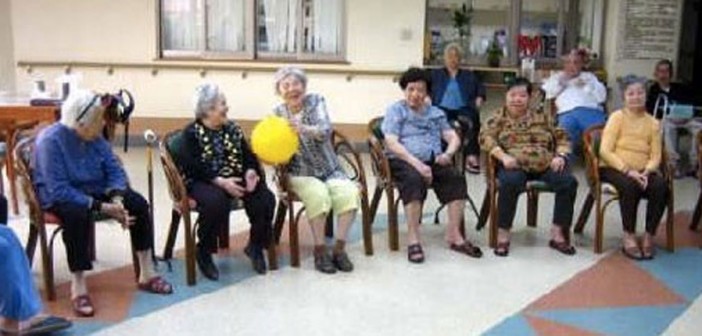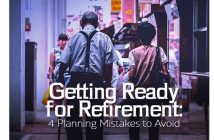~
Retirement is an increasingly contentious issue in Singapore. The issues are varied, ranging from the adequacy of the Central Provident Fund (CPF) to the rising cost of living.
Amid all the coffee shop talk and internet flame wars, some persistent myths have begun to emerge. You probably know more than one of these:
- Retirees will spend less
- Having loads of money will result in a happy retirement
- Property is always the best investment for retirement
- The most expensive insurance plan is the best for retirement
- Fixed deposits alone will provide for retirement
1. Retirees Will Spend Less
It is not true that all retirees will spend less. In fact, some retirees even spend more in the years immediately following their retirement.
Remember that, when you are no longer working, every day becomes a weekend. That could mean a lot of eating out, shopping, travelling, etc. Also, unexpected costs tend to creep into play: many retirees find themselves looking after grandchildren (and invariably bearing some of the expenses), finding new hobbies, raising pets, or facing new medical expenses.
Granted, you can always argue that simple lack of funds will eventually force you to live within your means. But is that truly the solution you want?
Don’t skimp on saving and investing now, because you think you’ll spend less in future. NTUC’s Heng Chee How is also advocating for the re-employment age to be extended from 65 to 67 years old. This, he says, allows older workers to earn more income by continuing to work and thereby grow their retirement fund to provide better for their retirement years.
2. Having Loads of Money will Result in a Happy Retirement
A lack of money will result in an unhappy retirement. But that being said, there is a point at which more money will do nothing to raise your level of happiness.
The most common complaints of retirees cannot be solved with money. Loneliness, regrets at having alienated children, a sense of aimlessness, feeling unproductive, etc.
These are not factors that can be corrected with a bigger pension fund. The best way to address these is to not obsess too much over money right now. By all means, save and invest for your retirement – but don’t forget to build the relationships that you will need in your twilight years.
You should also be mindful of your health – being ill later on could make dream trips impossible, even after retirement. In fact there are many older workers who have chosen to work longer for the sake of their health. For these workers, it’s not just about the money; they feel that their jobs keep their minds alert and their bodies active.
3. Property is Always the Best Investment for Retirement
A common paradox among Singaporeans is that we’re risk averse, yet often willing to invest in property without a second thought. The assumption is that, unlike other financial products, property is “safe”.
It is true that owning your home can reduce retirement costs – rental rates can be volatile, and this can play havoc with a pension fund. But home ownership must be handled with moderation.
Some Singaporeans overextend themselves, taking the biggest and longest possible loans to buy private housing. They hope that in 20 or 30 years, when the house is sold, it will have appreciated to several times its worth.
The truth is, property is not immune to price fluctuations. If you sell a house during a downturn in the property cycle, you can still make a loss. The solution then would be to wait for another upswing in the property cycle. This could take years to happen, and even experts struggle to accurately predict such timings.
The long uncertainty is not something you want to deal with in your 60s or 70s, and when you are facing dwindling pension funds.
A huge housing loan also consumes much of your income, and will do so for many years – at present, the maximum home loan most Singaporeans can take can consume up to 60% of their monthly income.
By paying such a large amount over a long loan tenure (20 or 30 years), you deprive yourself of the ability to make other savings and investments for your retirement. It’s a classic case of putting all your eggs in one basket.
It’s inadvisable to purchase a property that is more than five times your annual income, or to take housing loans that exceed 30% of your monthly income. By all means, buy a property for your retirement – but do not “go all out” on the assumption that the property will make you rich.
That being said, property investments these days are aided by the enhanced lease-buyback (LBS) scheme. Low-income elderly who live in 3-room flat (or smaller) can sell part of their lease to HDB, and still retain a 30 year lease. This helps retirees monetize their property, without having to sell it off on the open market.
4. The Most Expensive Insurance Plan is the Best for Retirement
A responsible financial adviser recommends plans that suit your needs and budget. Irresponsible ones often resort to scaremongering – inflating the sum you will supposedly need to retire.
Some financial advisers will come up with shocking amounts (numbers well over two million are not unheard of) that you “absolutely need” to survive at retirement; this is a prelude to making you buy more expensive – or risky – insurance policies.
Be especially wary of investment linked policies (ILPs), which are sometimes touted as a retirement solution. These policies may have expensive premiums, and the payouts can be variable.
Always talk to a range of different financial advisers and compare their products, before buying. Pay special attention to the “effect of deduction” column in the benefits illustration – this tells you how much you are effectively paying.
If you are still in doubt about your retirement planning, speak to an independent financial adviser. These advisers do not work for any one insurer or bank, and may give you a more balanced view.
Never assume that higher premiums mean a higher payout; remember the amount of the payouts are (usually) not guaranteed. There will be little you can do if, after contributing for 30+ years, you find out the reward is a pittance.
5. Fixed Deposits Alone Will Provide for Retirement
Even the best fixed deposit rates in Singapore seldom provide interest of more than 1% per annum. For comparison, the inflation rate in Singapore averages around 3%. This means that the value of your money (in a fixed deposit) does not keep pace with the rising cost of living.
So even though fixed deposits are among the safest financial products, they are not enough to guarantee your retirement fund. There are other alternatives to consider:
Your CPF ordinary account (OA) grows at around 2.5%, with the special account (SA) growing at 4%. If you have more than $20,000 in your OA, and more than $40,000 in your SA, you can invest up to 35% of your CPF savings in products like gold, or blue chip stocks.
For more details, check with the CPF board (mycpf.cpf.gov.sg)
At present, NTUC is also advocating a raise in CPF contributions for those over 50. As the safest asset in any Singaporean’s retirement planning, it’s vital that CPF amounts remain healthy.
Outside of the CPF, other options exist: banks such as OCBC and POSB provide Blue Chip investment programmes, which you can join for as little as $100 a month. This invests your money in highly capitalised and established companies, which are fairly low risk.
An independent financial adviser can help to determine your investment needs, and build a balanced portfolio for you. Note that proper planning for retirement requires a mix of different assets, with varying levels of risk.
If you insist on sticking only to low risk assets, you may find the returns are too little to provide for you at retirement.
Consider these to be equally important parts of your retirement plan. Health, relationships, and dreams are assets that equal, and often beat, cash.
What retirement myths annoy you the most? Comment and let us know!
Please Like our Facebook page:





2 Comments
Hi, how do I enquire on the cost of your ad space if I am interested? Which email do I send to? Pls advise. Thanks
Hi Jessica, thanks for your interest. Please email to webmaster [at] salary [dot] sg. Thanks! I’ll also email you.